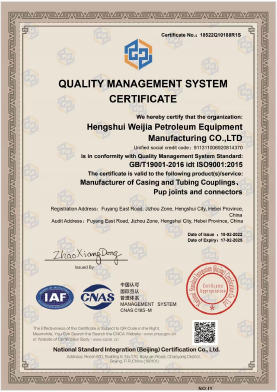- Afrikaans
- Albanian
- Amharic
- Arabic
- Armenian
- Azerbaijani
- Basque
- Belarusian
- Bengali
- Bosnian
- Bulgarian
- Catalan
- Cebuano
- Corsican
- Croatian
- Czech
- Danish
- Dutch
- English
- Esperanto
- Estonian
- Finnish
- French
- Frisian
- Galician
- Georgian
- German
- Greek
- Gujarati
- Haitian Creole
- hausa
- hawaiian
- Hebrew
- Hindi
- Miao
- Hungarian
- Icelandic
- igbo
- Indonesian
- irish
- Italian
- Japanese
- Javanese
- Kannada
- kazakh
- Khmer
- Rwandese
- Korean
- Kurdish
- Kyrgyz
- Lao
- Latin
- Latvian
- Lithuanian
- Luxembourgish
- Macedonian
- Malgashi
- Malay
- Malayalam
- Maltese
- Maori
- Marathi
- Mongolian
- Myanmar
- Nepali
- Norwegian
- Norwegian
- Occitan
- Pashto
- Persian
- Polish
- Portuguese
- Punjabi
- Romanian
- Russian
- Samoan
- Scottish Gaelic
- Serbian
- Sesotho
- Shona
- Sindhi
- Sinhala
- Slovak
- Slovenian
- Somali
- Spanish
- Sundanese
- Swahili
- Swedish
- Tagalog
- Tajik
- Tamil
- Tatar
- Telugu
- Thai
- Turkish
- Turkmen
- Ukrainian
- Urdu
- Uighur
- Uzbek
- Vietnamese
- Welsh
- Bantu
- Yiddish
- Yoruba
- Zulu
Innovative Techniques for Enhanced Efficiency in Pipe Mill Production Processes
The Evolution and Impact of Pipe Mills in Modern Industry
In the realm of manufacturing, pipe mills play a critical role in the production of pipes that are essential for a myriad of applications. From construction and infrastructure to oil and gas, the need for high-quality pipes has driven advancements in pipe mill technology. This article delves into the functions, evolution, and significance of pipe mills in modern industry.
Pipe mills, also known as pipe fabrication facilities, are specialized manufacturing plants that produce pipes from various materials, including steel, aluminum, and plastics. The process for producing pipes can vary based on the material and the required specifications, but fundamentally, pipe manufacturing involves forming materials into tubular shapes and treating them according to industry standards.
Historically, the production of pipes dates back centuries; however, the industrial revolution marked a significant turning point. The introduction of advanced machinery and assembly line techniques revolutionized the pipe manufacturing process. Early pipe mills utilized manual labor and rudimentary methods, which limited production capacity and efficiency. With the advent of electric motors and more sophisticated equipment, pipe mills began to operate on a larger scale, increasing output and precision.
Modern pipe mills employ a variety of high-tech machinery to optimize production. The process typically begins with steel coils or sheets that are fed into a forming machine, where they are shaped into a tubular form. Advanced welding technology is then utilized to join the edges, creating a continuous pipe. The use of high-frequency induction welding or submerged arc welding allows for strong, reliable joints capable of withstanding pressures inherent in various applications.
Post-welding treatment is an essential phase in pipe production. This involves processes such as heat treating, surface finishing, and testing for quality assurance. The implementation of non-destructive testing methods ensures that the pipes meet safety standards and are free from defects. This commitment to quality is vital, especially in industries where pipe failure can lead to catastrophic consequences.
pipe mill

The market for pipes is vast and diverse. Industries such as oil and gas, construction, and utilities rely heavily on the products of pipe mills. For example, in the oil and gas sector, pipes are critical for transporting crude oil and natural gas from extraction sites to processing facilities. The integrity of these pipes is paramount, as leaks can result in environmental disasters and significant financial losses. Therefore, the role of pipe mills extends beyond mere production; they are central to ensuring the safety and efficiency of crucial supply chains.
Sustainability has become an increasingly important focus in recent years. As industries work to reduce their environmental footprint, pipe mills are also adapting to these demands. Many manufacturers are investing in eco-friendly practices, such as recycling scrap materials, using sustainable resources, and reducing energy consumption in production processes. Innovations in materials, such as the use of corrosion-resistant alloys and composite materials, are also contributing to the development of greener, longer-lasting pipes.
The global landscape of pipe manufacturing is marked by fierce competition, with numerous players vying for market share. Economic conditions, regulatory frameworks, and technological advancements influence this dynamic. Emerging markets are particularly significant; as developing nations invest in infrastructure projects, the demand for pipes surges. This trend presents both challenges and opportunities for established pipe mills, prompting them to innovate continually and improve efficiency to remain competitive.
Moreover, automation and digitalization are shaping the future of pipe mills. Industry 4.0 technologies, such as the Internet of Things (IoT) and artificial intelligence, are being integrated into manufacturing processes. These innovations enable real-time monitoring, predictive maintenance, and enhanced operational efficiencies, ultimately driving productivity while reducing costs.
In conclusion, pipe mills are fundamental to modern industrial processes, providing essential products for various sectors. Their evolution from traditional manufacturing methods to advanced, automated systems reflects broader technological trends in the industry. As the demand for pipes continues to grow, particularly in developing economies, pipe mills must adapt and innovate to meet both market needs and sustainability goals. The future of pipe manufacturing appears promising, rooted in technological advancement and a commitment to quality and efficiency.
-
Tubing Pup Joints: Essential Components for Oil and Gas OperationsNewsJul.10,2025
-
Pup Joints: Essential Components for Reliable Drilling OperationsNewsJul.10,2025
-
Pipe Couplings: Connecting Your World EfficientlyNewsJul.10,2025
-
Mastering Oilfield Operations with Quality Tubing and CasingNewsJul.10,2025
-
High-Quality Casing Couplings for Every NeedNewsJul.10,2025
-
Boost Your Drilling Efficiency with Premium Crossover Tools & Seating NipplesNewsJul.10,2025







